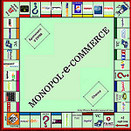 Amicable Division
Amicable Division The valuation of a business or professional practice is almost always a hotly contested issue in a Utah divorce that involves such a business. It is further complicated if the business was formed before the parties were married because the parties or court must determine if the business is separate property, marital property, or a combination of both. Once a court makes this determination the court will divide the property by “equitable distribution”, a statutory provision that explains the procedures for dividing marital property.
Separate Property vs. Marital Property
Separate Property is generally property that was acquired or accumulated before the marriage while marital property is property acquired or accumulated during the marriage. There are other distinctions that are usually not applicable to the valuation and division of a business, but you can learn more about the different property designations at my blog “Dividing Assets in a Utah Divorce.”
If a business is acquired or started during the marriage then the division is relatively easy once the valuation of the business is determined. However, if a business is formed before the marriage, then the parties or court must determine what value should be applied as separate property and what value should be applied as marital property.
For example, if a party has had a business for 10 years and then gets married and divorces after two years, the bulk of the business is going to be valued as separate property, and the departing spouse (the spouse that is walking away from the business) will likely only be entitled to a fraction of the business value. On the other hand, if a party starts a business and two months later gets married and stays married for 20 years, the departing spouse will likely be entitled to a much larger interest in the business.
For example, if a party has had a business for 10 years and then gets married and divorces after two years, the bulk of the business is going to be valued as separate property, and the departing spouse (the spouse that is walking away from the business) will likely only be entitled to a fraction of the business value. On the other hand, if a party starts a business and two months later gets married and stays married for 20 years, the departing spouse will likely be entitled to a much larger interest in the business.
How do you determine how much the business is worth?
 Valuing a Business
Valuing a Business There are generally two approaches to the valuation of a business; the approach you’ll prefer probably depends on whether you are the departing party or the party retaining the business. The departing spouse typically wants to value the business based on future capabilities, while the retaining spouse wants to value the business based on current sale value. In my experience the parties are usually far apart on valuation unless the business is being sold, at which point the valuation can easily be determined by the buyer. For obvious reasons it is probably not a good practice to take your spouse’s word as to the value of a business, and instead hire a professional consultant to make valuation determinations.
The valuation standard used in Utah, and most states, is “fair market value.” This is an ambiguous term that is often subject to debate, and is further complicated by the nature of the business. An accounting firm probably has a higher fair market value than a law firm because the accounting firm has clients that use their services over and over, while a law office may represent a client once then never see them again.
So how is fair market value determined? The American Institute of CPAs, the American Society of Appraisers, the Canadian Institute of Business Appraisers, the Institute of Business Appraisers, and the National Association of Certified Valuation Analysts defined the term fair market value as follows:
The price, expressed in terms of cash equivalents, at which a property would change hands between a hypothetical willing and able buyer and a hypothetical willing and able seller, acting at arms length in an open and unrestricted market, when neither is under compulsion to buy nor to sell, and when both have reasonable knowledge of the relevant facts.
This definition is so subjective parties are usually best served by hiring a professional consultant to value a business. Often times both parties will hire a consultant, if the values are close the court will usually take the average, or if there is a large discrepancy the court will typically appoint a “tie-breaker”, with the costs divided between the parties.
Once the value of the business is determined, the departing party will be assigned a percentage interest, and the retaining party will need to purchase the departing party’s interest outright or set up some kind of payment plan. If the parties can’t figure it out between them then the court can do it for them. As with all divorce issues, parties are almost always better off figuring it out between the two of them then letting the court decide for them.
The valuation standard used in Utah, and most states, is “fair market value.” This is an ambiguous term that is often subject to debate, and is further complicated by the nature of the business. An accounting firm probably has a higher fair market value than a law firm because the accounting firm has clients that use their services over and over, while a law office may represent a client once then never see them again.
So how is fair market value determined? The American Institute of CPAs, the American Society of Appraisers, the Canadian Institute of Business Appraisers, the Institute of Business Appraisers, and the National Association of Certified Valuation Analysts defined the term fair market value as follows:
The price, expressed in terms of cash equivalents, at which a property would change hands between a hypothetical willing and able buyer and a hypothetical willing and able seller, acting at arms length in an open and unrestricted market, when neither is under compulsion to buy nor to sell, and when both have reasonable knowledge of the relevant facts.
This definition is so subjective parties are usually best served by hiring a professional consultant to value a business. Often times both parties will hire a consultant, if the values are close the court will usually take the average, or if there is a large discrepancy the court will typically appoint a “tie-breaker”, with the costs divided between the parties.
Once the value of the business is determined, the departing party will be assigned a percentage interest, and the retaining party will need to purchase the departing party’s interest outright or set up some kind of payment plan. If the parties can’t figure it out between them then the court can do it for them. As with all divorce issues, parties are almost always better off figuring it out between the two of them then letting the court decide for them.
Does a business license have value?
Another issue that often comes up is the valuation of the business versus the valuation of a license or degree. For instance, if an attorney has a law practice formed during the marriage, and a law degree earned during the marriage, both of those “assets” are considered marital property and have value. This topic is explored further in my blog “Dividing Assets in a Utah Divorce.”
No matter the size or value of your business, it is imperative that you retain an attorney that is experienced in complex property issues. Call Pearson Law Firm for a free consultation with an experienced divorce attorney that is well versed in property division in a Utah divorce. Call today! 801-888-0991
No matter the size or value of your business, it is imperative that you retain an attorney that is experienced in complex property issues. Call Pearson Law Firm for a free consultation with an experienced divorce attorney that is well versed in property division in a Utah divorce. Call today! 801-888-0991


 RSS Feed
RSS Feed
